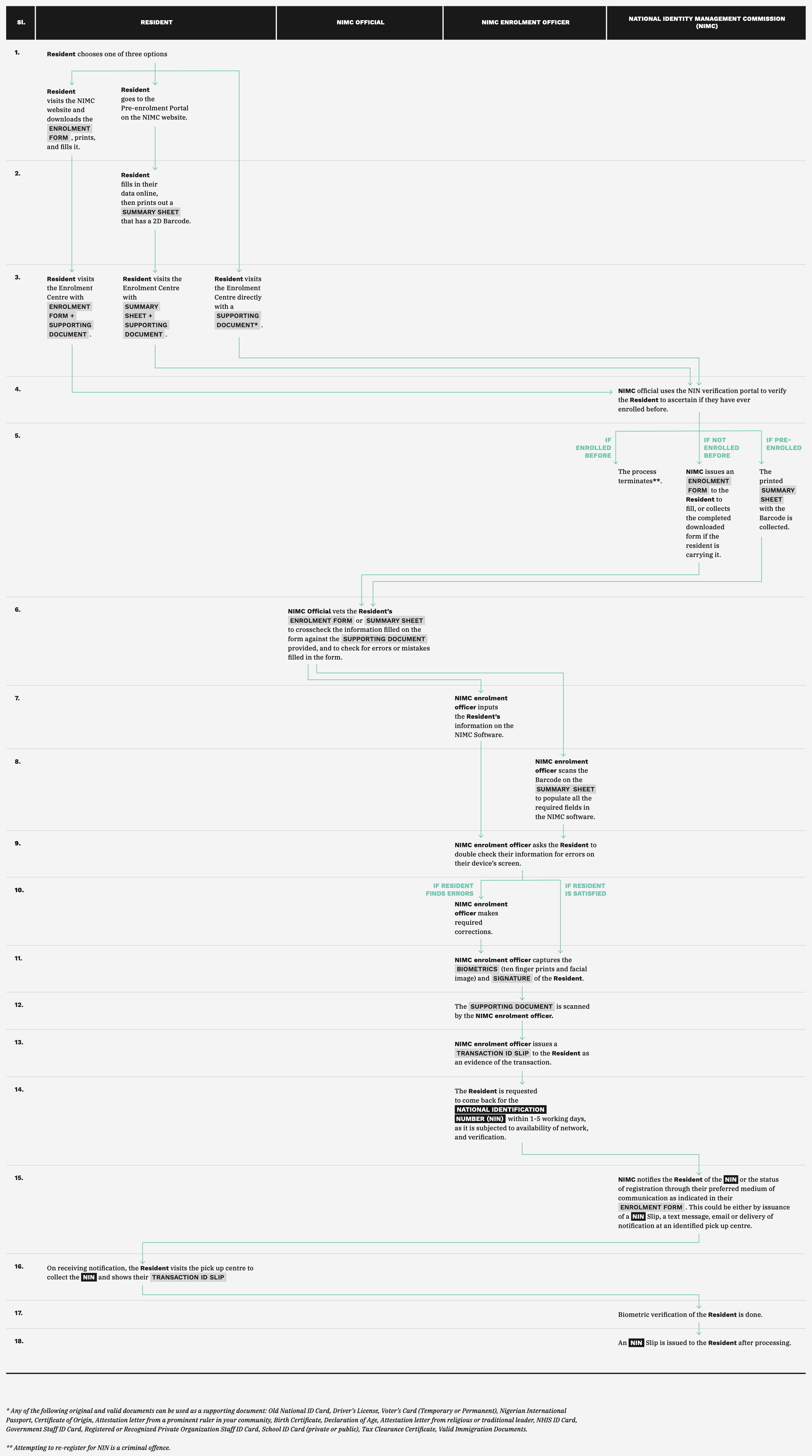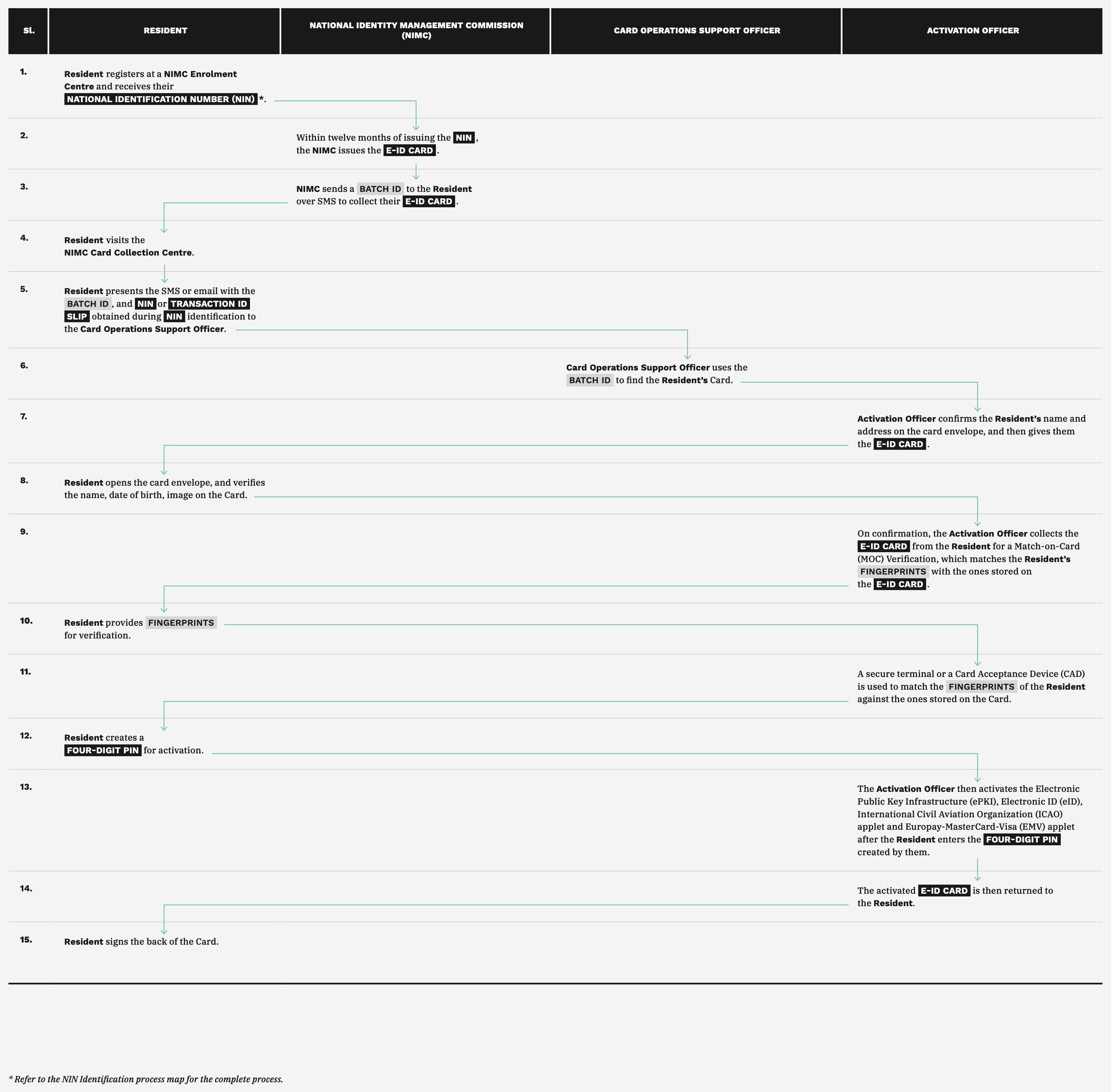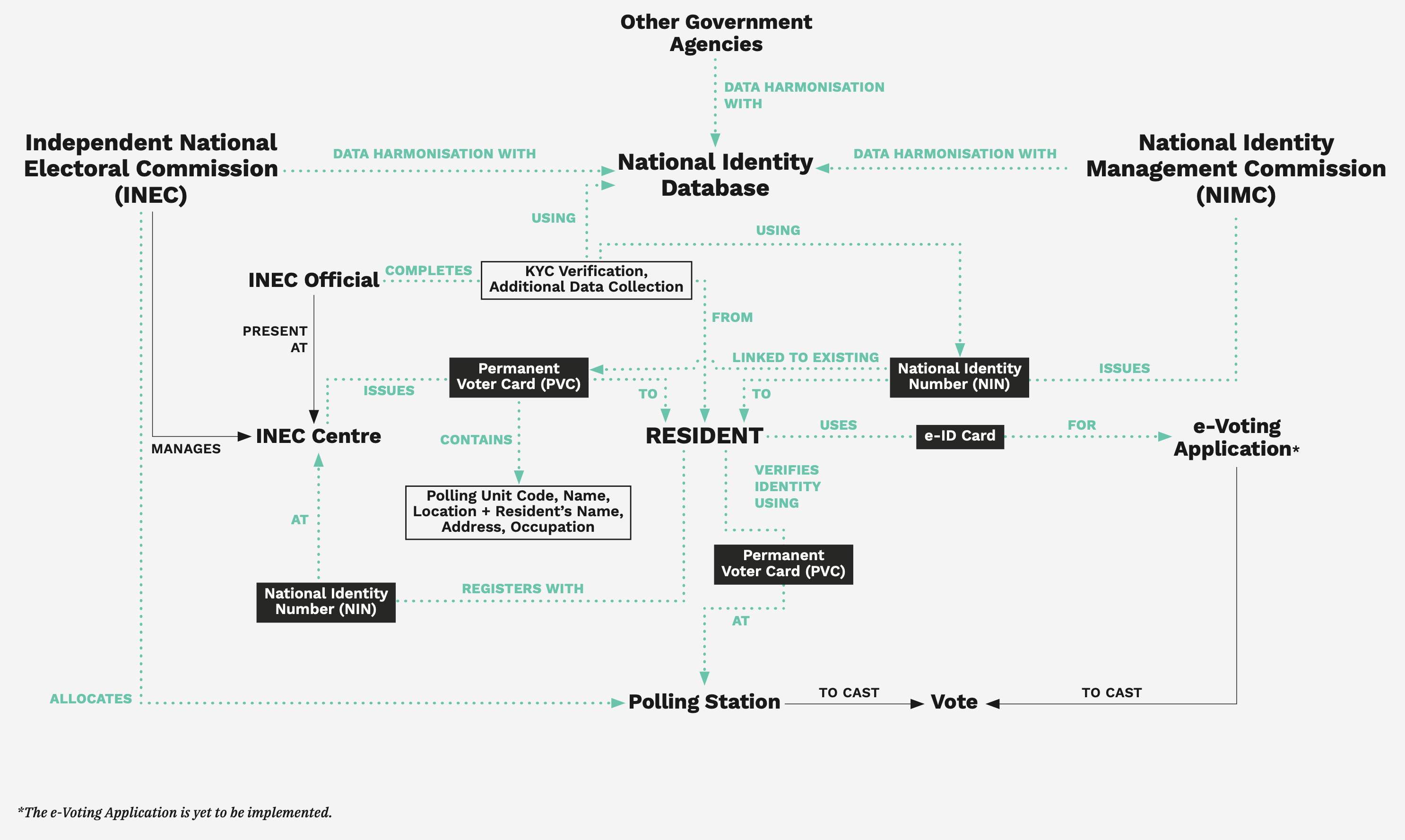Digital ID in Nigeria:
Insights from Exploratory Research Mapping
This blog post can be read along with our exploratory research maps on the digital identity system in Nigeria. The maps capture the processes and systems involved in Nigeria’s digital ID system. Following is a summary of the key insights derived from the research and mapping explorations.
The digital ID system in Nigeria is managed by the National Identity Management Commission (NIMC). The NIMC was established in 2007, and has the mandate to establish, own, operate, maintain and manage the National Identity Database in Nigeria.1 The organization registers, assigns a unique National Identification Number (NIN), and issues e-ID Cards to the citizens and legal residents of Nigeria.2 The Nigerian digital ID system has been envisioned to affirm identity, enhance governance and service delivery in Nigeria.3 The enrolment for the NIN began in 2010, and the e-ID Card was launched in 2014.4 We noted several insights upon mapping the identification and authentication processes, and the systems around the use of NIN and e-ID in the finance, healthcare, travel, welfare schemes, and governance sectors.
Lack of Redressal Mechanisms
A clear observation from the processes in the Nigerian digital ID system has been that there is a lack of redressal mechanisms in cases of failure of identification and authentication.

In the identification process for the NIN, if the information in the enrolment form doesn’t match the information in the supporting documents during cross checking, the process to resolve the inconsistency is unclear. Further, since it is a punishable offence to register for the NIN more than once, the consequence of the portal incorrectly showing a previous registration for an individual is unclear. There are also reports of there being high rates of fraud in identity documents.5 This increases the possibility of fraudulent entries in the digital ID system. There is no clear redressal mechanism mentioned for such errors.

There are several points in the process of identification for the e-ID Card that can lead to the individual failing to receive it. For instance, there can be errors with the Batch ID, information on the e-ID Card, or biometrics match that can cause the process to not be successful. Similarly, in case of failure of authentication of the NIN or e-ID Card due to fingerprints mismatch, the way to proceed is not clarified.
Exclusion in the Processes
The use of fingerprints biometrics as a primary means of identification makes this digital ID system exclusionary for the elderly, persons with disabilities, and anyone who has unidentifiable fingerprints. However, the ID system also uses facial image and signature to address this. The Nigerian digital ID system offers both online and offline options of identification and authentication processes for the NIN and e-ID Card. But, the lack of redressal mechanisms as mentioned earlier could lead to individuals not being able to avail the benefits of the digital ID.
Centralised Database
The National Identity Database serves as a central source of identity verification and authentication.6 The NIMC is also responsible for the harmonization and integration of existing identification databases in government agencies and integrating them into the National Identity Database.7 While the integration of the parallel identity databases has itself been a challenge for Nigeria,8 after this integration is complete, the NIMC will have centralised control of information, since it created and maintains the National Identity Database. Such a design makes the database vulnerable to privacy and security threats.

Limitations due to Scale
Over 41 million Nigerians have been registered in the National Identity Database as of May 2020.9 Nigeria, with its large population, faces the challenge of registering an additional 100 million individuals in the next three to five years. Further, considering the finance applications of the NIN and the e-ID Card, the country has undertaken the broadest financial inclusion program in the continent.10 In October 2020, the NIMC announced that it would scale up enrolment and issuance from 500,000 to 2.5 million monthly. However, several reports suggest that the issuance of the e-ID Card has been delayed for many residents.11 There is also not a clear course of action for addressing these delays in receiving the NIN or the e-ID Card after being registered.
Notes
